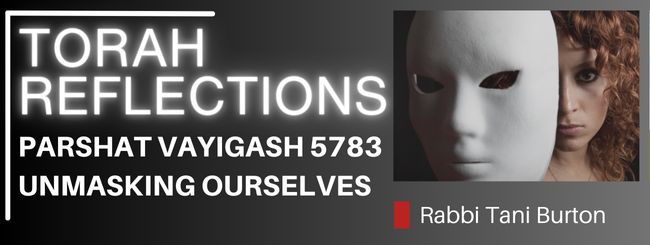Torah Reflections: Conversations on the Weekly Parshah
בס”ד
Integrating Torah into one’s life through reflection and conversation can be an incredibly fun and engaging experience. It’s a journey of discovery, where ancient wisdom and timeless teachings come to life in our daily experiences. Through reflection, we have the opportunity to dive deep into the rich tapestry of Torah, extracting profound insights and lessons that resonate with our modern lives. The joy lies in the ‘aha’ moments, those instances when a Torah verse or story suddenly connects with our personal challenges, aspirations, and values. And when we engage in conversations about Torah with others, it becomes an interactive exploration, where diverse perspectives and interpretations enhance our understanding. These dialogues often spark excitement and intellectual curiosity, making the learning process both enjoyable and fulfilling. Torah becomes a vibrant and dynamic part of our lives, offering not just guidance but also a source of endless fascination, connection, and growth.
NOTE: Don’t feel obligated to go through every source or answer all the questions—unless you want to. Even one source, or one question will give you plenty of material for discussion and meditation. Enjoy this!
Some thoughts about Parshat Vayigash
The story of Joseph and his brothers, as recounted in Genesis 45:1-5, explores the theme of hidden identity and the eventual revelation of one’s true self. Joseph, elevated to a position of power in Egypt, conceals his origins behind a facade of Egyptian culture and authority. This separation from his brothers results in a strained familial relationship and a narrative of intrigue and deception. The turning point comes when Joseph, unable to contain his emotions any longer, reveals his true identity to his brothers. The act of vulnerability and authenticity bridges the gap, paving the way for reconciliation and forgiveness. From this parsha, we learn the importance of shedding masks, expressing one’s true self, and the transformative power of truth in healing relationships. The story concludes with a family reunited and a recognition of a higher purpose at play in their lives.
Questions for discussion and personal reflection:
- How do you think Joseph hiding his true identity affects his relationship with his brothers in the story, and have you ever experienced a situation where someone wasn’t completely honest with you?
- When Joseph reveals himself, he emphasizes being their brother who was sold into Egypt. How do you feel when someone acknowledges past mistakes, and what role does forgiveness play in such situations?
- Have you ever needed privacy to reveal something personal about yourself? How do you think having or not having witnesses affects the process of sharing your true self?
- Think about a time when you showed your true self to someone. How did it impact your relationship? How does authenticity contribute to genuine connections and finding meaning in life?
- The story involves family conflict and reconciliation. Have you ever experienced estrangement or forgiveness in your own family or personal relationships? What lessons can be learned from Joseph’s approach to healing relationships?
Shabbat Shalom!
By Rabbi Tani Burton
© Copyright, all rights reserved. If you enjoyed this article, we encourage you to distribute it further.
Our blogs may contain texts/ quotes or references of
Mechon-Mamre.org, Aish.com, Sefaria.org or AskNoah.org
that contain copyrights and which we may use with there permission.
